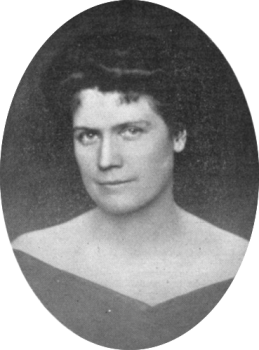
One hundred years ago this week, Grace Kingsley overheard a conversation about an opera in an unlikely place:
Among the patrons of art who will see Robin Hood during the coming week at the Mason are Douglas Fairbanks and his two merry men, Bull Montana and Spike Robinson. They were talking about it out at Fairbanks’ studio the other day.
“I’m going to see Robin Hood,” declared Doug, “because I played in it once. I carried a bow and arrow, and as my real bow hadn’t come at the last minute, I rigged up a clothes hanger. But it did pretty well. Anyhow, I hit another of Robin Hood’s merry souls of Sherwood Forest in the eye with it.”
“Who was that guy Robin Hood, anyhow?” demanded Spike Robinson. “Wha’s they call him Robin for?”
“Don’t you know who Robin Hood was?” cried Bull Montana triumphantly. “Why, he was the original Raffles, the gentleman robber. That’s why they calls him Robin; he was always robbin’ somebody.”

The jokes didn’t improve, but Montana went on to question whether everything Mr. Hood stole from the rich was really given to the poor, and to speculate on how successful a Robin Hood Pictures Company would have been (Hood would have properly threatened producers to make them pay bills on time anyway). Montana thought that all of that legitimate money would have reformed the gang.

Unfortunately, this isn’t an amazing discovery of the origins of Fairbanks’ 1922 film. He was a stage actor for fifteen years, so it seemed perfectly plausible that he worked in some low-rent version of Robin Hood without proper props. However, it just wasn’t so. I checked the trade journals in Lantern and the newspapers in Chronicling America and didn’t find him in any Robin Hood cast lists. Furthermore, his biographer Tracey Goessel didn’t turn up any such engagement in her scrupulously researched book. However, she did mention that he could be…untruthful about his early days. It is nice to know that he didn’t really hit somebody in the eye with a clothes hanger/bow.

Actually, Goessel said that director Allan Dwan brought the project to him in late 1921, and he had to work hard to convince Fairbanks to make it instead of The Virginian (p.281-2). Dwan began by having an impromptu archery contest near where Fairbanks was working. Because he loved anything athletic, Doug wanted to learn how to shoot a bow and gave it a try. Dwan showed him and explained the nifty tricks he could do with it, then he said “That’s Robin Hood…That’s the guy we want you interested in.” Fairbanks replied: “I don’t know. I don’t want to have anything to do with it.” Later he got the idea of combining his interest in the Crusades with the Robin Hood myth. After he got talked out of playing Richard the Lionheart instead of Robin, they were on their way to making great big hit that was also a critical success.
At least we learned that the story crossed his mind in 1920, and that people had time to shoot the breeze on film sets then.

When Fairbanks and company went to the Mason, they got to see a very good show. The version of Robin Hood that inspired the conversation was a light opera in the style of Gilbert and Sullivan by Reginald de Koven and Harry B. Smith that had debuted in 1890 and was revived several times since then. Kingsley herself went on Monday along with “a house full of enthusiastic music lovers,” and her review was glowing:
Robin Hood itself is imagination and fine music, the letting us into a joyous mimic world, which makes a joke of life, and yet retains the semblance of artistic dignity from which the latter day jazz has cut us entirely off, and Robin Hood, as sung by the Ralph Dunbar Company, is a production of superior beauty and quality. There’s a really gloriously-voiced chorus of men and women who add incalculably to the charm of the piece, and the old romantic tale of the dashing bandit of middle ages, whose exploits were subject of song even in his own day, fitted to the composer’s brilliant and melodious numbers, was played in a fashion to rival the old Bostonian production in its best days.

Kingsley reported on another conversation, this one from the set of the recently opened So Long Letty. Colleen Moore asked co-star Walter Hiers about his thoughts on dieting:
“Don’t believe in it.” replied Hiers. “Ethically, morally and physically it’s wrong. Besides, directors take my figure into consideration when they cast me for a picture. Anyhow, dieting’s all bosh.”
“I’m on a diet,” the winsome Miss Moore informed him. “My doctor was very strict in giving me my orders. He insists that every day I eat candy, cream puffs, all kinds of pastries, lots of sweet stuff—”
“Say,” Hiers interrupted, ”where’s that doctor’s office?”
Who knew: I’m on the Colleen Moore diet! Enjoy your leftover Thanksgiving pie and you can be, too.
Tracey Goessel, The First King of Hollywood, Chicago Review Press, 2016.

















